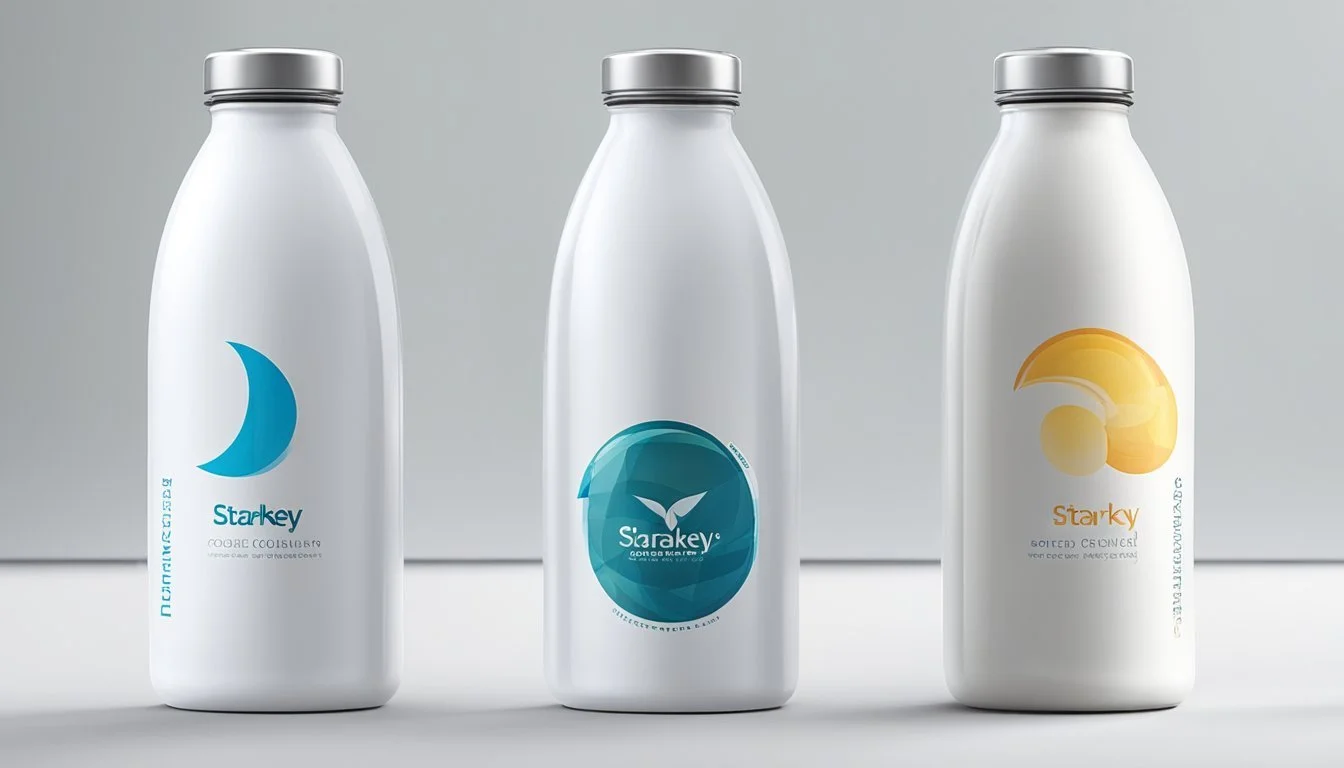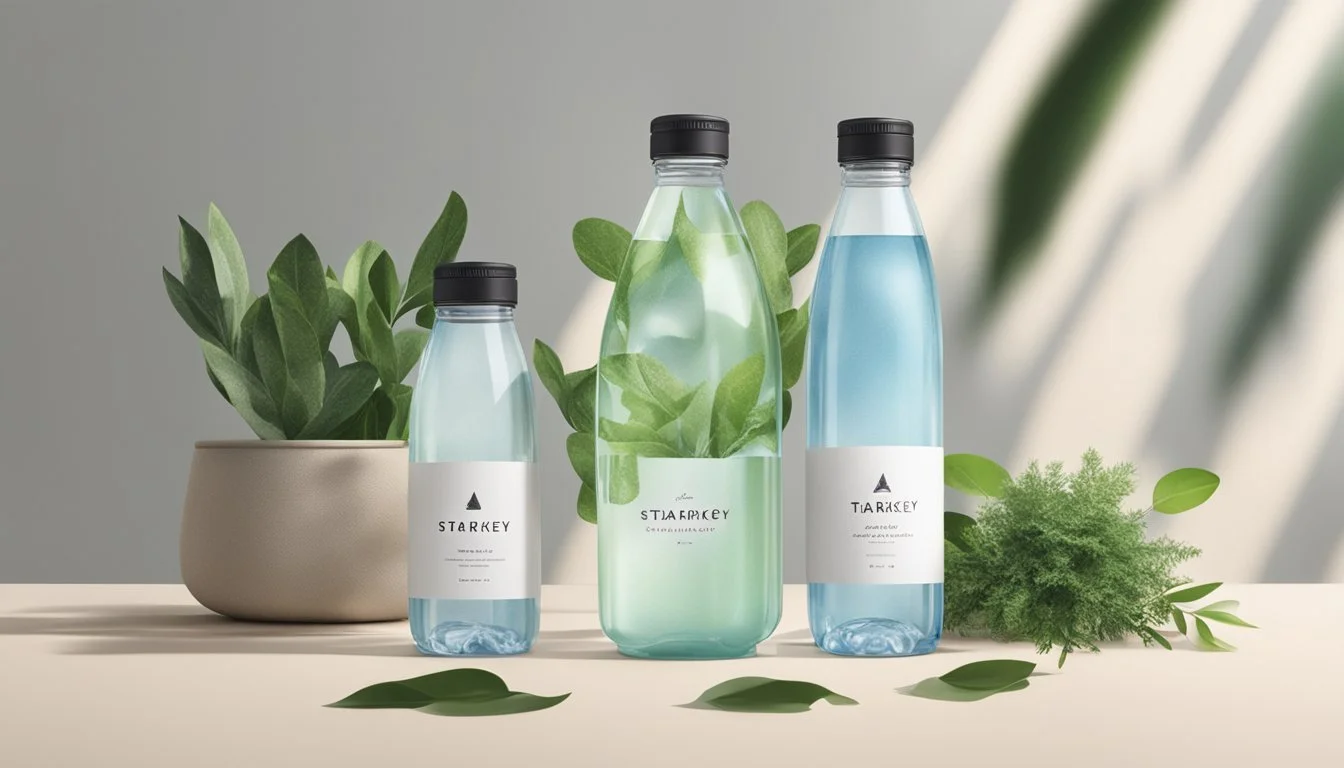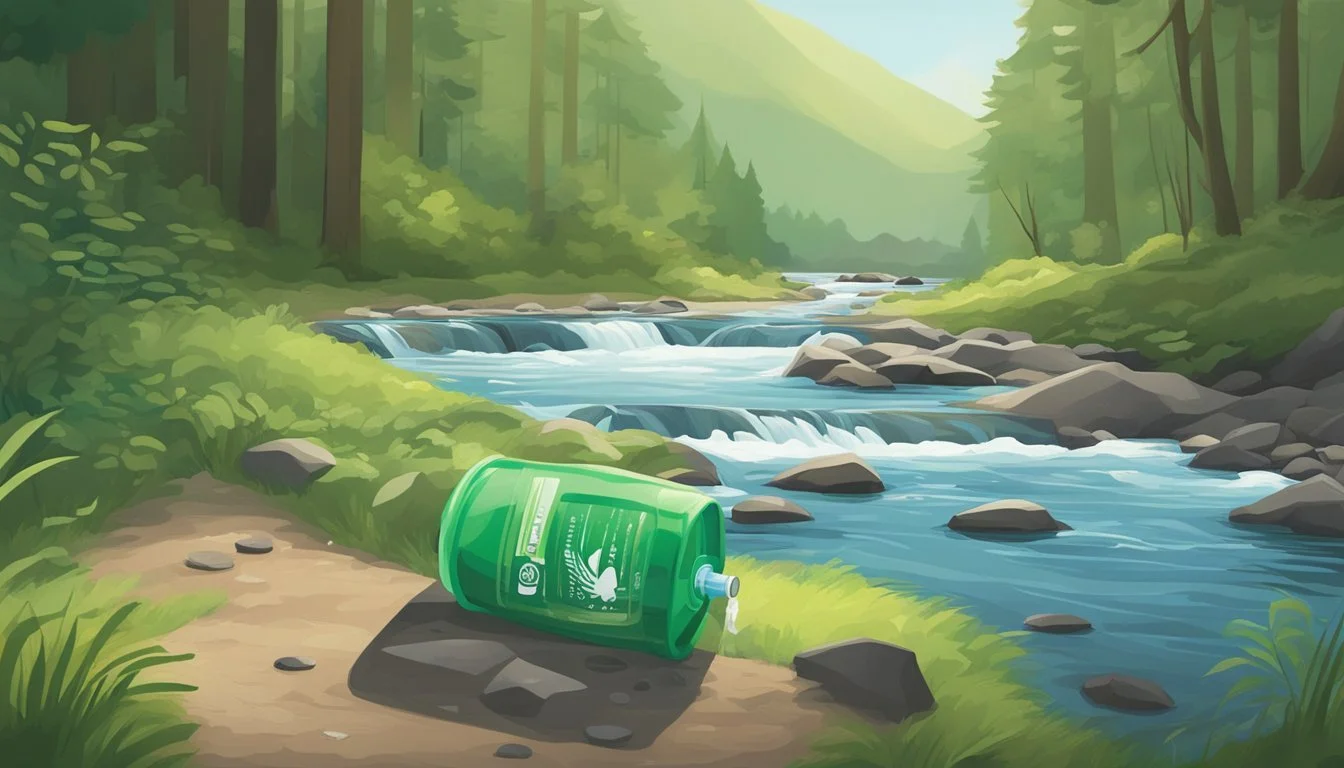Ethos vs. Starkey
A Clear Analysis of Bottled Water Quality
When it comes to bottled water, consumers often face a bewildering array of choices. Two brands that frequently come up in conversations are Ethos and Starkey. Ethos, owned by Starbucks, is marketed as not only refreshing but also socially beneficial, as a portion of sales supports clean water initiatives. Starkey, on the other hand, touts its naturally sourced alkaline water from geothermal springs in Idaho.
Ethos offers a crisp taste and the added benefit of contributing to a good cause. This brand appeals to socially conscious consumers who appreciate the blend of taste and philanthropy. Starkey boasts a unique natural alkalinity and a smooth mouthfeel, appealing to those who seek natural hydration with potential health benefits from its alkaline nature.
Choosing between Ethos and Starkey largely depends on what qualities a consumer values in their bottled water. Whether it's the clean, socially responsible ethos of Ethos or the naturally sourced, alkaline richness of Starkey, both brands offer compelling benefits that cater to different preferences.
Understanding Bottled Water
Bottled water comes from various sources, each contributing to its unique taste and composition. The origin and type of water significantly influence its mineral content and perceived purity.
Water Sources and Natural Purity
Water sources are critical in determining the quality and characteristics of bottled water. Natural spring water comes from underground sources that naturally rise to the surface. These waters are often prized for their purity and high mineral content.
Mineral water, on the other hand, is sourced from mineral springs and contains various minerals like calcium, magnesium, and potassium, which must occur naturally at consistent levels. These minerals can impart distinct tastes and potential health benefits. Essentially, the origin of water—whether it be a deep underground reservoir or a mountain spring—plays a crucial role in its purity and quality.
Bottled Water Types: From Spring to Mineral
Spring water is one of the most common types, known for being naturally filtered as it moves through underground rocks. This filtering process often results in a clean and refreshing taste, free from contaminants.
Mineral water is another popular choice, legally required to contain a certain level of minerals, giving it unique flavors and health benefits. There are also variations like artesian water, sourced from confined aquifers, and well water drawn from man-made wells.
Purified water undergoes processes like distillation, deionization, or reverse osmosis to remove impurities. Although it may lack the natural minerals found in spring and mineral waters, its high purity is valued for safe hydration.
All these types of bottled water offer unique benefits, catering to different tastes and needs.
Brand Profiles
Ethos and Starkey are both prominent bottled water brands with unique identities and commitments. This section provides an in-depth look at each brand, focusing on their histories, missions, and distinguishing features.
Ethos Water: Brand Overview
Ethos Water was founded with a humanitarian mission at its core. The brand donates a portion of its profits to clean water initiatives around the world. This philanthropic angle sets Ethos apart in the competitive bottled water market.
Ethos uses recyclable materials in their packaging, aligning with industry trends towards sustainability. The brand's commitment to social causes is a significant selling point, resonating with environmentally and socially conscious consumers.
Their water is sourced from carefully selected springs to ensure high quality. This combination of quality sourcing and charitable efforts gives Ethos a unique market position.
Starkey Water: Brand Identity
Starkey Water is renowned for its natural geothermal source located in the Starkey Hot Springs in Idaho. The water is rich in minerals, offering unique taste and potential health benefits.
The brand emphasizes the purity and natural origin of its water, bypassing extensive purification processes to maintain its natural state. This focus on minimal processing appeals to consumers seeking natural and unaltered bottled water.
Starkey’s branding highlights its American roots and commitment to quality. Their packaging often features clean, rustic designs that reflect the natural origins of the product. This combination of natural purity and strong branding helps Starkey stand out in the crowded bottled water market.
Health and Hydration
When comparing Ethos and Starkey bottled water, it's crucial to examine their health benefits and how effectively they hydrate the body. Key elements include electrolytes and mineral content.
Hydration Benefits of Bottled Water
Ethos and Starkey both excel at providing essential hydration. Proper hydration supports bodily functions, including digestion, temperature regulation, and joint lubrication. Ethos emphasizes safe and refreshing water while contributing to charitable causes.
Starkey, sourced from a geothermal spring, offers natural mineral-rich hydration, often preferred for its purity. Both brands ensure high-quality water that meets safety standards.
Electrolytes and Mineral Content Analysis
Electrolytes such as sodium, potassium, and magnesium are vital for maintaining fluid balance and muscle function. Ethos water maintains a balanced mineral profile, which includes a moderate level of electrolytes suitable for everyday hydration.
Starkey stands out with its higher mineral content, particularly magnesium, known for its health benefits, such as supporting nerve and muscle function. This makes Starkey an excellent choice for those seeking water rich in essential minerals.
Here's a comparison of some key minerals:
Mineral Ethos (mg/l) Starkey (mg/l) Sodium 3.1 9.8 Potassium 0.2 2.4 Magnesium 0.4 7.3
Quality Considerations
When comparing Ethos and Starkey bottled water, pH levels and alkalinity and contaminants and purity testing are key considerations. These factors determine the overall safety and quality of the water you drink.
PH Levels and Alkalinity
Ethos water typically has a neutral pH level, which aligns closely with the Environmental Protection Agency's (EPA) standards for drinking water. Starkey water, on the other hand, often boasts a slightly alkaline pH, appealing to those seeking alkaline water for its purported health benefits.
PH Levels:
Ethos: Neutral (around 7)
Starkey: Slightly alkaline (around 8)
Alkaline water enthusiasts believe a higher pH can neutralize acid in the bloodstream and improve health. While scientific consensus varies, this consideration might influence your choice depending on your health goals.
Contaminants and Purity Testing
Purity testing is paramount to ensure bottled water is free from harmful contaminants. Ethos water prioritizes stringent purity tests, adhering to strict EPA regulations for microbiological, chemical, and radiological contaminants. It is marketed as purified water, focusing on rigorous filtration processes.
Purity Levels:
Ethos: Highly purified, extensive testing
Starkey: Natural mineral water, thorough testing but potentially higher trace minerals
Starkey water, sourced from geothermal springs, contains natural minerals which offer unique taste profiles. While it also undergoes purity checks, the natural mineral content can sometimes result in detectable trace minerals. Both brands ensure high safety standards, but the source and testing protocols can influence the final choice based on individual preferences for taste and mineral content.
Taste and Aesthetic Experience
Ethos and Starkey bottled waters offer distinct taste experiences influenced largely by their unique mineral compositions. Sommeliers also play a role in the evaluation of these waters, adding an additional layer of understanding to their overall aesthetic appeal.
The Influence of Minerals on Taste
The taste of bottled water is significantly impacted by its mineral content. Ethos Water sources its water from natural springs, boasting a clean and slightly sweet profile, thanks to a balanced blend of calcium and magnesium.
Starkey Water, drawn from a deep geothermal spring, has naturally occurring minerals that give it a subtle alkaline taste. This includes traces of silica, which can add a smooth and refreshing mouthfeel.
When comparing the two, one might notice that Ethos has a crisper finish, attributed to its lower mineral content. Meanwhile, Starkey’s mineral richness provides a fuller, more rounded taste. These variations in taste can cater to different preferences, whether one prefers a light, crisp quality or a richer, more textured experience.
The Role of Sommeliers in Water Tasting
In the realm of water tasting, sommeliers bring a refined perspective to the evaluation process. They assess factors such as clarity, mouthfeel, and aftertaste. For instance, a water sommelier might describe Ethos Water as having a crisp, clean finish with a hint of sweetness, making it suitable for pairing with lighter meals or wines.
On the other hand, Starkey Water may be praised for its smooth texture and subtle minerality, which can complement heartier dishes and fuller-bodied wines. These insights help consumers make informed choices based on their tasting preferences.
Sommeliers often use detailed tasting notes and scoring systems to highlight these nuances, guiding individuals to appreciate the unique characteristics of each water brand. The role of the sommelier thus enhances the overall aesthetic experience beyond just hydration.
Environmental and Social Responsibility
Ethos and Starkey are both notable for their commitment to environmental and social responsibility, though they adopt different strategies to achieve their goals.
Packaging: Glass vs. Plastic Bottles
Ethos Water is typically sold in plastic bottles that are recyclable. This aligns with the broader industry focus on sustainability. Ethos emphasizes not just the recyclability of their packaging but the importance of reducing plastic waste.
Starkey, on the other hand, opts for glass bottles. Glass is often viewed as more environmentally friendly due to its infinite recyclability. Glass packaging also avoids the potential issues of plastic contamination. Each brand prioritizes different aspects of environmental impact through their packaging choices.
Sustainability Initiatives and Water Stewardship
Ethos Water was founded with a mission to support clean water projects worldwide. A portion of proceeds supports initiatives that provide access to safe water in developing regions. Acquired by Starbucks, Ethos continues to emphasize its social mission.
Starkey highlights its dedication to environmental sustainability through its water sourcing and bottling processes. The company takes steps to ensure minimal environmental impact, including sustainable water management practices. Starkey’s focus tends to be more on ecological sustainability rather than social causes. Both brands, however, reflect a strong commitment to responsible water stewardship.
Comparative Analysis
Ethos and Starkey bottled water are analyzed across factors such as corporate practices, purity, taste, and consumer preferences, highlighting essential differences to aid customers in making an informed choice.
Ethos vs. Starkey: A Side-by-Side Comparison
Ethos Water is known for its charitable contributions, with a portion of profits supporting water programs in underprivileged communities. This adds a philanthropic aspect to each purchase.
Starkey Water emphasizes its source from a deep aquifer, promising naturally mineral-rich water. Starkey's focus is on the purity and unique mineral content, catering to those who prioritize natural hydration benefits.
Taste varies between the two. Ethos has a clean and crisp taste, suitable for everyday hydration. Starkey is often noted for its slightly alkaline taste, attributed to its deep-water source. Both brands use recyclable packaging, aligning with environmental sustainability efforts.
Consumer Preferences and Market Trends
Consumers often choose Ethos for its social impact, feeling that their purchase contributes to a greater cause. This appeal to eco-conscious buyers has positioned Ethos well in markets that value corporate responsibility.
Starkey attracts those who prioritize health benefits, given its unique mineral composition. Its natural source and fewer additives make it a favorite among consumers who are mindful of water purity.
Market trends point towards a growing demand for both charitable contributions and health benefits. Both companies are tapping into sustainability with recyclable packaging, an increasingly important factor for modern consumers. This dual focus ensures that both Ethos and Starkey continue to resonate with their target audiences while meeting contemporary market expectations.
The Verdict
When comparing Ethos and Starkey bottled water, several factors stand out.
Taste:
Ethos water has a crisp taste that many consumers appreciate, while Starkey offers a smooth, slightly alkaline flavor due to its mineral content. Both waters cater to different preferences.
Source:
Ethos sources its water from various locations, ensuring a consistent quality. Starkey, on the other hand, is known for its single-source origin from a geothermal spring in Idaho, which adds unique minerals to its content.
Purity:
Both brands claim high purity levels. Ethos undergoes rigorous filtration processes. Starkey benefits from its geothermal source, which naturally filters the water.
Packaging Sustainability:
Ethos uses recyclable materials and emphasizes its contribution to clean water initiatives. Starkey also uses eco-friendly packaging but focuses more on the natural purity of its source.
Social Impact:
Ethos stands out for its charitable contributions. For every bottle sold, a portion of the profits goes to support water programs in underprivileged communities. Starkey does not highlight any similar philanthropic efforts.
Price:
Ethos is usually priced moderately, making it accessible to many. Starkey, being a premium brand due to its unique source, tends to be on the higher end of the price spectrum.
Quick Comparison:
Factor Ethos Starkey Taste Crisp Smooth, slightly alkaline Source Various locations Geothermal spring in Idaho Purity High, through filtration Naturally filtered Packaging Recyclable, charitable impact Recyclable Social Impact Supports clean water initiatives Not emphasized Price Moderate Premium
Ethos and Starkey both offer distinct benefits. The choice between them depends on personal preferences regarding taste, source integrity, social impact, and budget.
More About Ethos
Ethos vs Mountain Valley Spring Water: Which Bottled Water is Better?
Ethos vs Richard's Rainwater: Which Bottled Water is Better?
Ethos vs Whole Foods Italian Still Mineral water: Which Bottled Water is Better?
More About Starkey
Icelandic Glacial vs Starkey: Which Bottled Water is Better?
Mountain Valley Spring Water vs Starkey: Which Bottled Water is Better?
Starkey vs Kirkland Signature: Which Bottled Water is Better?
Starkey vs Richard's Rainwater: Which Bottled Water is Better?
Starkey vs Whole Foods Italian Still Mineral water: Which Bottled Water is Better?





